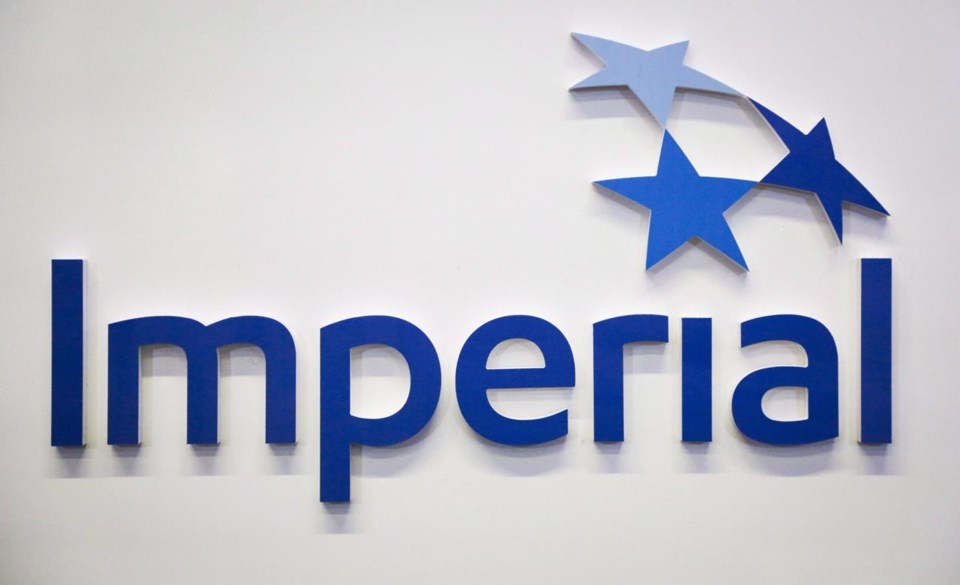CALGARY ŌĆö Imperial Oil Ltd. pushed its Kearl oilsands project to record production for its first quarter as it continues to ramp up output ahead of the opening of the Trans Mountain pipeline expansion.
The company averaged production of 277,000 barrels per day at the project, up about seven per cent from the same quarter last year.
"I'm very pleased to report that we sustained the strong operating momentum from the past several quarters," chief executive Brad Corson told analysts on a conference call discussing the company's latest results on Friday.
Overall, Imperial's production rose by a more modest two per cent from last year to an average of 421,000 oil-equivalent barrels per day in its latest quarter as both Cold Lake and Syncrude saw production drop. Output was also off its highest-ever production of the equivalent of 452,000 barrels per day last quarter, due mostly to seasonal factors, Corson said.
Imperial, majority-owned by U.S. giant Exxon Mobil, has been working for some time to improve productivity and lower costs at Kearl, which is located north of Fort McMurray, Alta.
A major piece of that work was Imperial's multi-year effort to convert its entire fleet of heavy haul mining trucks at Kearl to fully autonomous operation. The company announced the completion of the initiative last fall.
The ramp up comes as the May 1 scheduled commercial start date for the Trans Mountain expansion approaches, which is helping lower the discount on Canadian crude, Corson said.
The narrowing differential between the U.S. benchmark WTI crude price and Canadian WCS helped offset a softening in oil prices, he said.
"A key factor is the approaching start up of TMX, which will provide significant additional capacity for egress out of the western Canadian basin," Corson said.
The production and pricing changes led to a first quarter profit of $1.20 billion, down from its best-ever first quarter last year that had profits of $1.25 billion.
The company said the profit amounted to $2.23 per diluted share for the quarter ended March 31, up from $2.13 per diluted share in its first quarter last year when it had more shares outstanding.
Total revenue and other income amounted to $12.28 billion, up from $12.12 billion in its first quarter of 2023.
Refinery throughput for the quarter averaged 407,000 barrels per day, down from 417,000 barrels per day in the first quarter of 2023, while refinery capacity utilization was 94 per cent, down from 96 per cent.
This report by The Canadian Press was first published April 26, 2024.
Companies in this story: (TSX:IMO)
The Canadian Press



